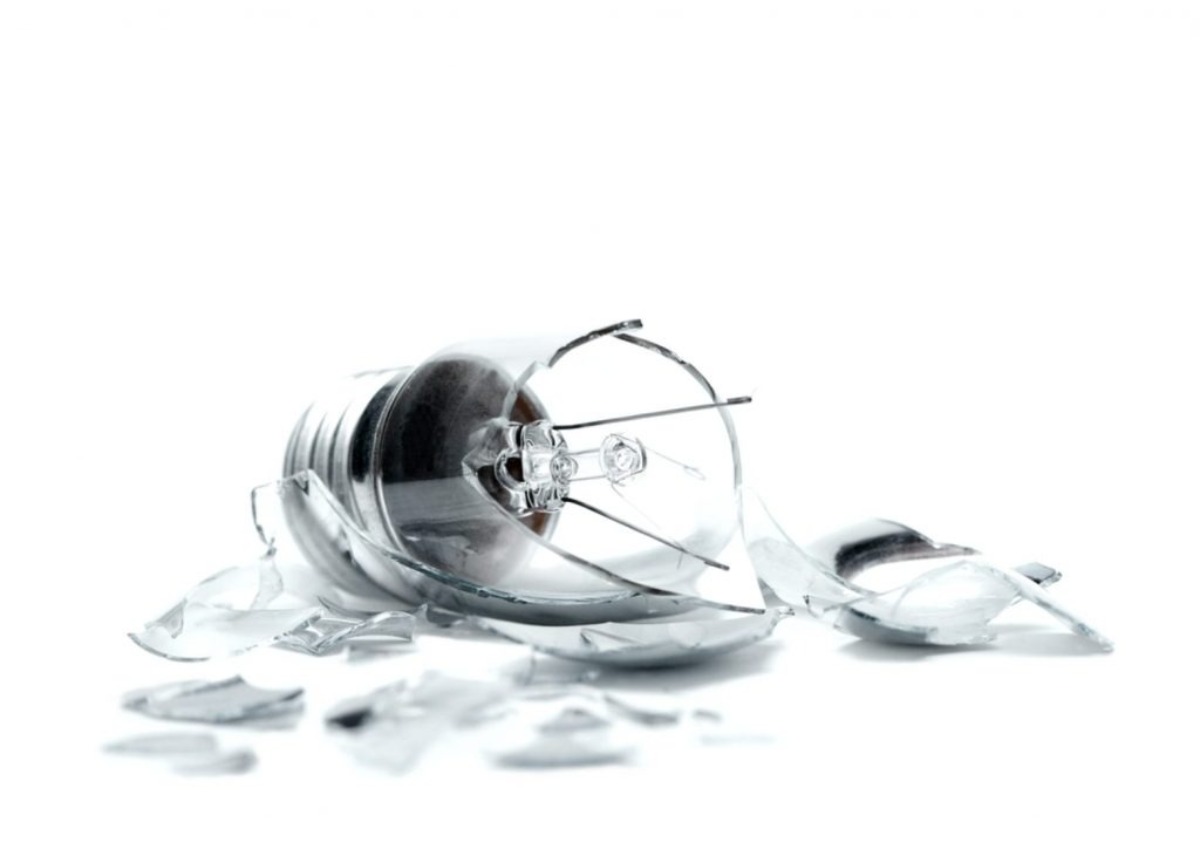If you’ve ever wondered what causes a light bulb to explode, this article is for you!
The explosion of a lightbulb always seems to happen at the wrong time-not that there’s a great time to be left in the dark. Luckily, these days our mobile phone flashlight can help us avoid the shattered glass as we replace the bulb. Lightbulbs wear out just like most of our electronic devices. But it can be concerning when it doesn’t just burn out and actually explodes.
If you’re a homeowner or renter in Sydney, you might have experienced this. So, what causes a light bulb to explode? In this article, we’ll discuss six common reasons it happens and ways to help you avoid it happening in the future.
6 Possible Causes of a Exploded/Blown Light Bulb
Below we discuss what causes a light bulb to explode. This information can help you figure out what has caused yours to explode and how to avoid it happening in the future.
1. Lack of insulation at the base of the bulb
Light bulb bases come insulated to protect them. Occasionally, bulbs don’t come with any or enough insulation at their base. A lack of insulation can cause the metal screw base to melt from the heat during lighting. If the base melts, the gas stored in the bulb can leak out and reduce the bulb’s pressure. As a result, the loss of pressure in the bulb can result in a pressure imbalance which can cause the light bulb to explode.
2. Loose socket connection
Bulb bases are made to fit specific light sockets. If they aren’t screwed in perfectly, the loose connection can cause the bulb to explode. Loose connections cause the electricity to jump from the socket to the bulb rather than flow smoothly. This jump in electricity can be problematic and can cause the fitting to overheat and the bulb to explode. Ensuring you have the correct bulb for the particular socket can help you avoid this when fixing your light bulbs. If you have the correct sized bulb, then ensuring that the bulb is screwed firmly into the socket can solve it.
3. Wrong or mismatched bulb wattage
Light fixtures are designed for light bulbs with specific wattage ratings. A wattage rating is the maximum power that a device can safely handle. If a bulb has a wattage rating higher than the fixtures wattage limit, it’s at risk of overheating. As mentioned above, overheating a light bulb can cause it to explode. To prevent your light bulbs from exploding, you can check the recommended light fixture wattage on the side of your socket. If you can’t find it, you could contact the manufacturing company and ask. If you’re still unsure, it’s best to use the lowest wattage light bulb in the fixture.
4. Power surge
Another cause of exploding light bulbs is a power surge. Power surges are sudden increases in the voltage on your home electrical circuits. Our electrical devices, including light bulbs, are only made to handle a certain amount of power. So when a power surge happens, an overwhelming amount of electricity runs into the device.
Halogen and incandescent bulbs are the most susceptible to exploding from a power surge. These bulbs have a filament that produces light from the heat of flowing electricity. So, a power surge can result in too much power running through and overheating the filament. The filament can then burn out and snap, causing the bulb to explode. This flying filament that darts off into the glass, generally caused by an overheated light bulb, is a common cause of light bulbs exploding.
5. Sensitive halogen light bulbs and oily hands
Interestingly, the oils on our skin can be a cause of light bulbs exploding. When we handle a bulb, we can leave residual oils from our hands on the glass that can build up and eventually burn. This is true for halogen and incandescent bulbs as they operate at high heat to produce light. A high temperature is needed to interact with the oils left on the bulb. When the oils burn, it can weaken the integrity of the bulb and eventually explode. The best way to avoid this is to wear gloves when handling light bulbs to protect the glass.
6. Faulty parts
Like all our factory-produced products, it’s possible to buy a faulty light bulb. Defective parts are usually within the socket, the filament, the electrics or the glass itself. If a light bulb explodes due to a faulty part, it can be hard to detect which part was defective. In this case, replacing the bulb with a new one is the right move. To avoid this, it can be worth checking the light bulbs that you purchase in-store. Take them out of the box and inspect them for anything that doesn’t look right.
Seek Professional Help From Experienced Light Electricians
A light bulb exploding in your home can be alarming. A loud bang and shattered glass often accompany it. Before moving on and replacing the bulb, you can try to inspect the cause of the explosion. We’ve talked about what causes a lightbulb to explode in this article, which can help you diagnose the problem. However, if you can’t determine the cause of your light bulbs explosion, it might be time to have an expert assist. Our electricians in Sydney can help.








